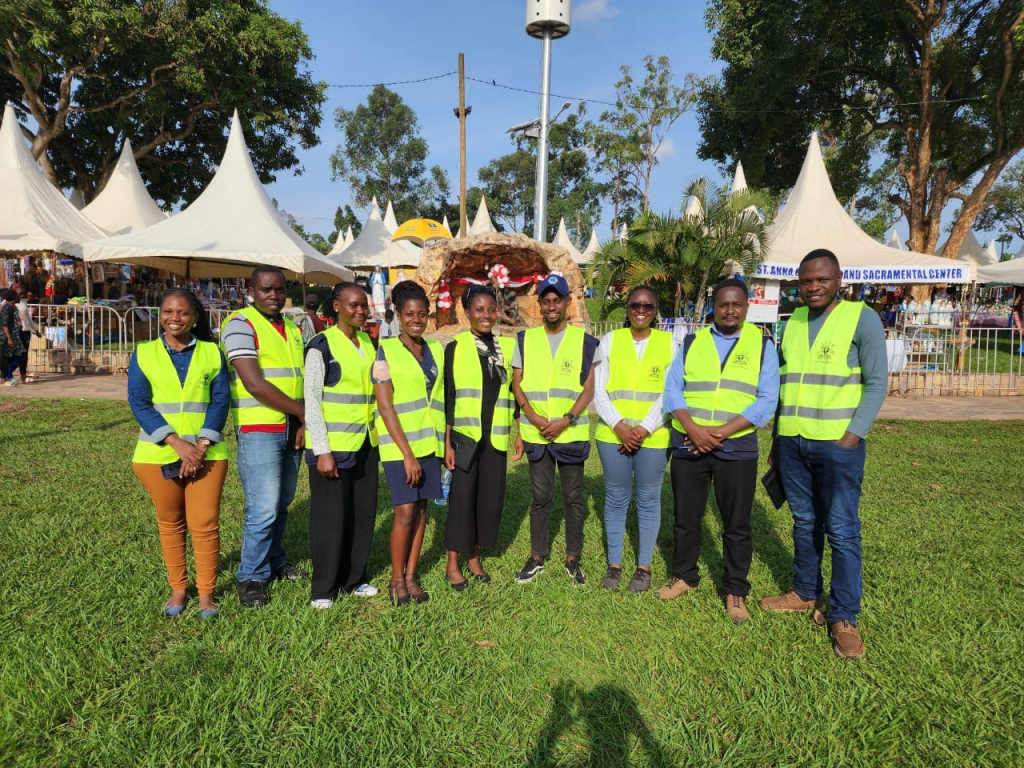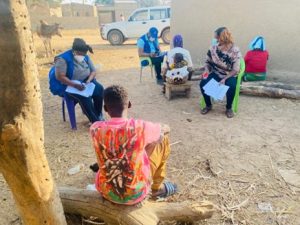AFENET Syndromic Surveillance Deployment at Namugongo Martyrs Shrine – 28 May 2025
-
by
AFENET

On Wednesday, 28 May 2025, the African Field Epidemiology Network (AFENET) deployed a team of eleven surveillance officers to Namugongo Martyrs Shrine as part of enhanced public health surveillance ahead of the annual Martyrs Day celebrations. The initiative aimed to support early detection of potential public health threats and ensure preparedness for the mass gathering expected on 3 June.
The day began with a morning briefing at Zia Angelina Health Centre, facilitated by representatives from the Ministry of Health and Mr. Alex Mulyowa from the Makerere University School of Public Health (MakSPH). Surveillance officers were oriented on the use of digital tools for real-time data collection and reporting—specifically, the Open Data Kit (ODK) for field data entry and the District Health Information Software 2 (DHIS2) for centralized reporting.
Each officer was assigned a target of 20 ODK entries per day, and tablets were distributed to facilitate data capture. Two officers were also designated to each medical tent to support live DHIS2 data entry, strengthening the digital backbone of the surveillance effort.
Following the debrief, the team was initially divided for deployment to both the Namugongo Anglican and Catholic Shrines. However, upon arrival, it was determined that the Anglican Shrine was not yet ready to host the surveillance team. Consequently, all officers were redirected to the Namugongo Catholic Shrine.
At the Catholic Shrine, the team was introduced to the emergency medical staff stationed across various medical tents. The surveillance operation was part of a broader, multi-sectoral response coordinated by the Ministry of Health, with support from key partners including the Lugazi Medical Team, the Infectious Diseases Institute (IDI), Uganda Police Force, Uganda People’s Defence Forces (UPDF), and the Uganda Catholic Medical Bureau (UCMB), among others. This collaboration ensured a well-organized and responsive health monitoring system.
Throughout the day, surveillance officers fanned out across the shrine grounds, engaging with pilgrims, vendors, and security personnel. Their mandate was to collect syndromic data, identify any emerging health risks, and provide real-time updates through digital platforms to inform timely interventions.
In the evening, the team reconvened at Zia Angelina Health Centre for a debrief session. The officers shared insights from the field, assessed the functionality of the surveillance tools, and discussed challenges and lessons learned. Suggestions were made to improve data flow and reporting processes for upcoming days and future deployments.
Key Observations from the Field:
- Attendance at the shrine was still low, reflected in fewer medical cases reported at the tents.
- Washrooms at the site lacked essential hygiene supplies such as soap and disinfectants.
- Food vending points generally adhered to good hygiene practices.
The deployment provided valuable insights into the effectiveness of syndromic surveillance in mass gathering contexts. AFENET remains committed to strengthening public health preparedness and response across the region by leveraging timely data, multi-stakeholder collaboration, and digital innovation.
Team of surveillance officers deployed at Namugongo Catholic Shrine in support of Martyrs Day public health preparedness.



